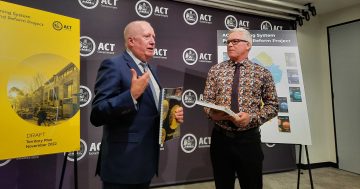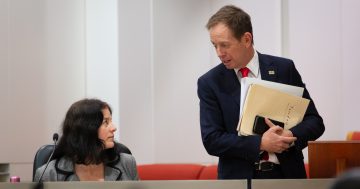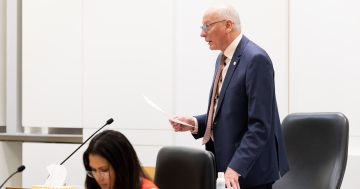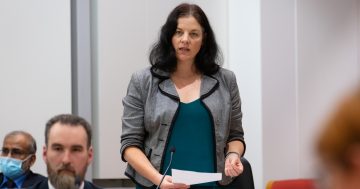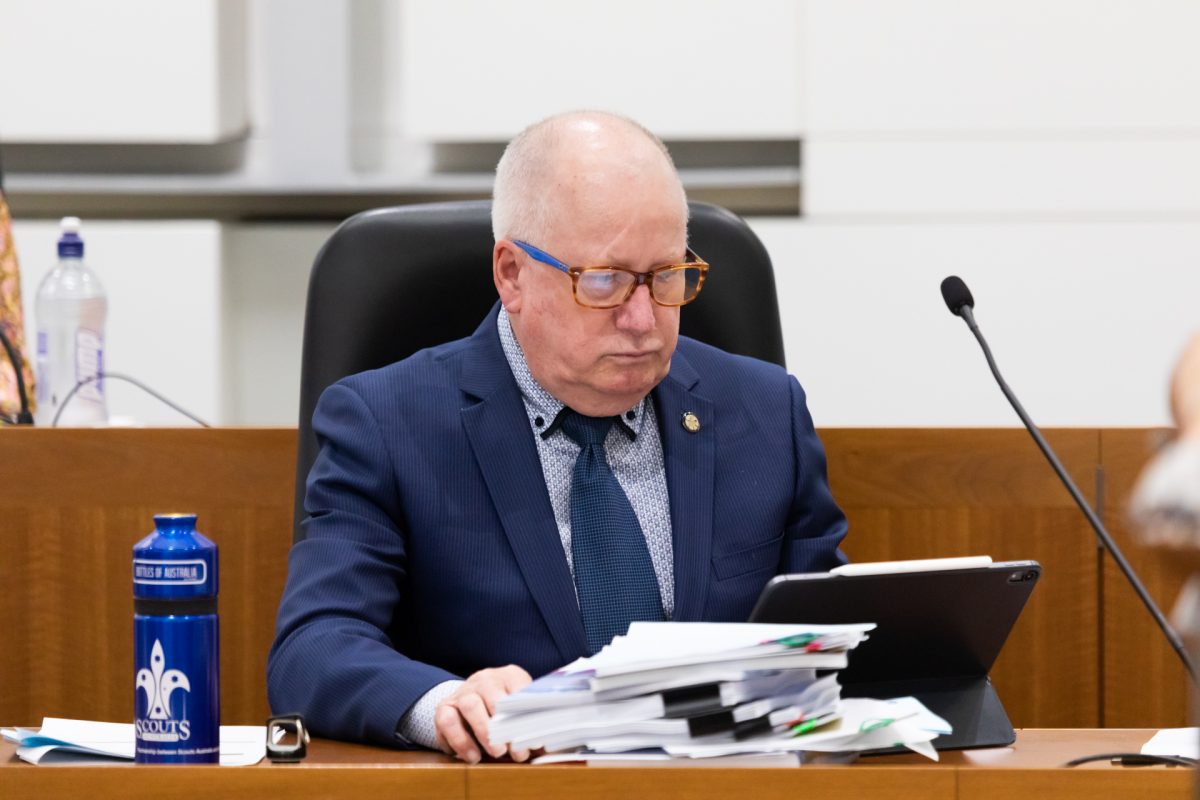
Planning Minister Mick Gentleman has tabled his response to the draft Planning Bill inquiry’s recommendations. Photo: Michelle Kroll.
The ACT Government has been accused of being hell-bent on achieving a predetermined outcome in its response to an Assembly committee’s inquiry into the draft Planning Bill.
Planning Minister Mick Gentleman has tabled his response to the committee’s 49 recommendations, 20 of which he has just noted or rejected.
But Inner South Canberra Community Council chair Marea Fatseas said even the recommendations the government agreed to, in part or in principle, contained conditions that rendered them meaningless.
“It really just confirms that it is a march towards a predetermined outcome where the government is giving lip service to community consultation but not changing substantively what it is already planning to do,” she said.
Ms Fatseas said the disappointing response confirmed that the government was moving towards a deregulated planning system.
Mr Gentleman rejected or noted many of the recommendations aimed at increasing consultation, governance, compliance and environmental controls, as well as a better definition of terms such as “substantial public benefit” or “outcomes-focused”.
He agreed to review the arrangement where the Chief Planner is also the Director-General of EPSDD, but not before a lengthy defence of the arrangement and then saying it wasn’t necessary.
Ms Fatseas doubts a review will ever happen.
Mr Gentleman rebuffed calls for greater checks and balances, such as an independent panel of experts, by saying they would duplicate functions already available within EPSDD.
Similarly, he rejected calls for a Landscape Architect and a Social Planning Unit, arguing there was already expertise within EPSDD.
More reference to related government policies, such as climate change, was also not necessary because it was implicit in the legislation.
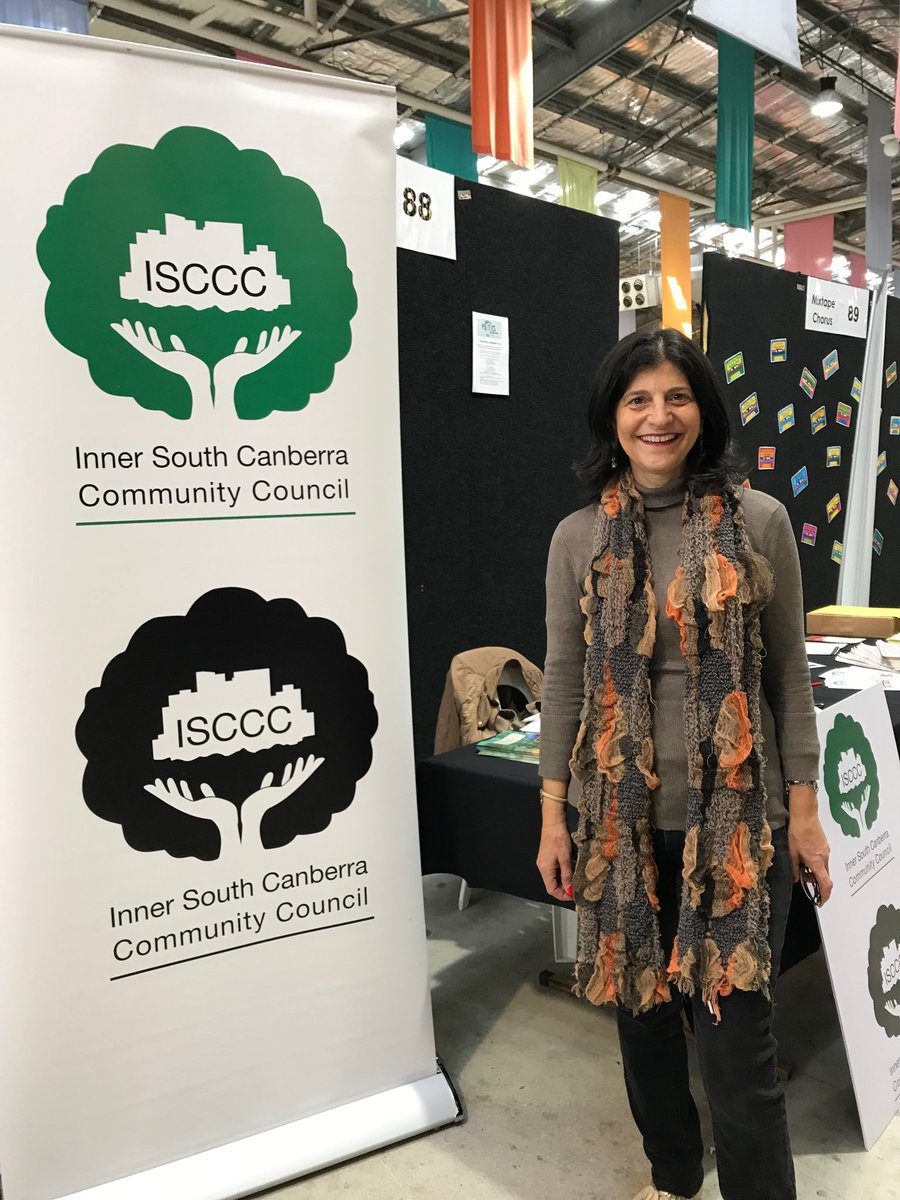
Inner South Canberra Community Council chair Marea Fatseas: “There should be some clear rules to provide residents with confidence that this new system is not going to be the wild west.” Photo: File.
Ms Fatseas said the Minister had also rejected recommendations that would give the Assembly more oversight, such as not halving the time it takes to decide whether to inquire into Territory Plan variations.
She said the new planning system was supposed to be clearer, simpler and provide more certainty, but much of what was on the table remained at a very high level in the planning principles, which offered only vague protections for residents.
She said inner south residents had made their concerns clear – access to sunlight, building heights, zoning changes, green space and protection of neighbourhood character.
“There should be some clear rules to provide residents with confidence that this new system is not going to be the wild west,” Ms Fatseas said.
Weston Creek Community Council chair Bill Gemmell said he was very concerned about how the government had dismissed concerns about governance.
Mr Gemmell said the reinforcement of the “holy trinity” of the Chief Planner, Planning Minister and the Chief Minister at the centre of the planning system was out of step with the Territory’s progress on integrity and the appointment of the Integrity Commissioner.
“I caution them against going this way,” he said.
Mr Gemmell said it was also dangerous for the Minister to be able to declare a Territory Priority Project through a notifiable instrument without Assembly scrutiny.
Ms Fatseas also slammed government moves to pass the Bill at the end of June and then introduce an Interim Territory Plan before the Assembly could inquire into the draft Territory Plan.
“Why not look at the whole package together, see how it all fits together once all public comments are incorporated and then pass the Bill?” she asked.
She feared there would be little scope for change once the Interim Territory Plan was in place.
The government believes the planning changes are vital to boosting housing supply in Canberra, particularly in established suburbs.
Ms Fatseas said people understood that Canberra needed to build more housing, particularly of the affordable kind.
“The question is, how is it going to be done so that we have livable suburbs in a future of climate extremes so that we get more affordable housing and are resilient in the face of climate change,” she said.












